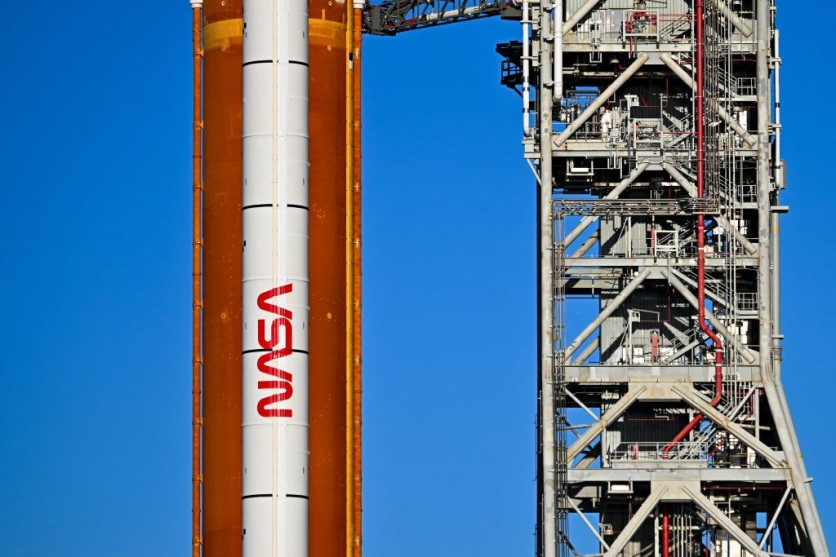Tropical Storm Nicole ravaged Florida on Thursday, Nov. 10, where NASA's preparations for its Artemis 1 lunar mission are located at. The space agency is currently looking into potential damages to the moon rocket due to the storm.
As reported first by Space.com, Nicole hit Florida's Space Coast as a Category 1 hurricane before weakening as it proceeded inland to become a tropical storm. The Artemis 1 vehicle, which is perched atop Launch Pad 39B at NASA's Kennedy Space Center (KSC), was battered by the storm's wind and rain.

Is Artemis 1 Harmed?
According to NASA officials, the Artemis 1 stack, which consists of a Space Launch System (SLS) rocket and an Orion crew capsule, looks to have survived the incident largely unharmed.
"Our team is conducting initial visual check-outs of the rocket, spacecraft, and ground system equipment with the cameras at the launch pad," Jim Free, associate administrator of the Exploration Systems Development Mission Directorate at NASA headquarters, said in a tweet.
"Camera inspections show very minor damage such as loose caulk and tears in weather coverings. The team will conduct additional onsite walk down inspections of the vehicle soon," Free added.
Nicole passed through at an altitude of 60 feet (18 meters), and sensors at Pad 39B registered peak wind gusts of 82 mph (132 kph), according to Free.
In a statement on Tuesday, Nov. 8, NASA officials claimed that SLS is built to withstand winds up to 85 mph (137 kph) at the 60-foot level with structural margin.
NASA's first mission to the moon in 50 years should have been on its way ahead of the initial Nov. 14 launch from KSC. However, the space agency ultimately decided to ensure the safety of the Artemis crew by pushing the launch date once more.
If everything goes according to plan, NASA could successfully launch its moon rocket on Wednesday, Nov. 16.
Expiration Date
As a result of the program's most recent delay, there are now concerns that some of the Artemis 1 hardware may become outdated before launch.
For instance, the two solid rocket boosters for the mission, which were developed by Northrop Grumman, have several crucial deadlines. If Artemis 1 doesn't launch by the middle of December, NASA will need to check the boosters to see if they can still be fired despite their existing expiration dates.
Several booster components for the SLS vehicle are approaching their existing expiration dates, according to the team's most recent evaluations.
According to Cliff Lanham, senior vehicle operations manager for the KSC Exploration Ground Systems Program, a countdown starts as soon as a rocket is stacked. Hence, the timer on the Artemis 1 vehicle is currently ticking.
One portion expires on December 9 and another on December 14, according to Lanham. A separate environmental exposure will also expire on Dec. 15.
The crew will need to conduct additional investigation to see if the rockets' expiration dates could be extended if the lunar mission is unable to launch by those dates.
The original launch of Artemis 1 was delayed by a month due to technical issues. NASA was once again forced to postpone the September launch due to Hurricane Ian.
NASA assures that teams are prepared to pick up where they left off as soon as the tropical storm has passed the Florida coast. Technicians will walk down and assess the launch pad when they get there to see if the rocket and spacecraft are still functioning.
This article is owned by Tech Times
Written by Jace Dela Cruz
ⓒ 2026 TECHTIMES.com All rights reserved. Do not reproduce without permission.




